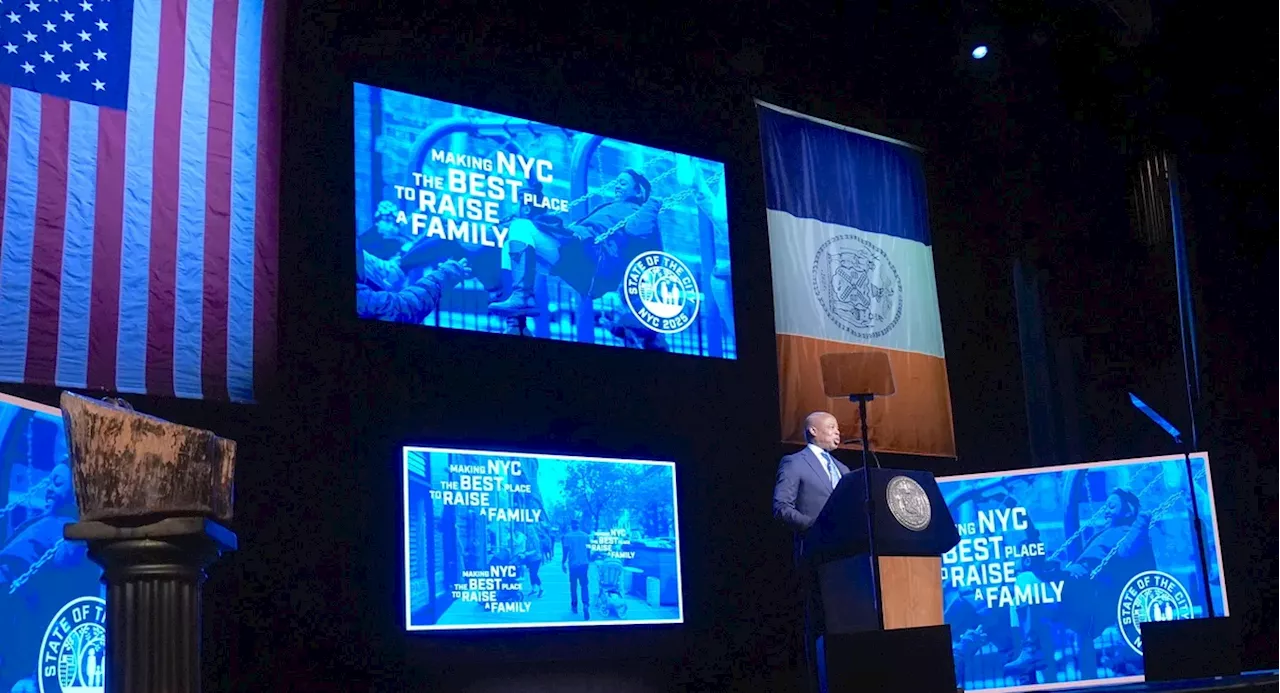The affordability of child care in New York City is a major issue in the upcoming mayoral election. Incumbent Mayor Eric Adams faces criticism for proposed budget cuts to early childhood programs, while challengers offer a range of solutions, from universal care to extended school days.
When Stephanie Park’s first-born child was denied a spot in public 3-K, a financial dilemma familiar to many families across the city suddenly hit her home. Park was on maternity leave with her second child, and anticipating a return to work in the financial services industry. Without the option of free 3-K, her family was looking at $59,000 per year to care for the two kids. She called the number “insane.” “That is money that could be going towards a deposit on the apartment.
It’s money that my household could be using to pay down student loans, to be saving in our kids 529 accounts,” Park said. Park’s predicament will sound familiar to many New York City parents – and it represents a key vulnerability for Mayor Eric Adams as he campaigns for reelection. Families have fled the city in recent years, driven out by skyrocketing costs including child care. Adams enraged parents and providers last year when he proposed steep budget cuts to the city’s pre-K and 3-K programs — as well as earlier this month, when his administrationdaycare centers with abrupt closures. The mayor’s rivals seem to agree that child care is a ripe area for targeting the incumbent, though their plans include vast differences.most early childhood education funding last year after outcry from grassroots groups like New Yorkers United for Child Care, which Park joined out of frustration over last year’s budget fight. This year, his administration touted a budget proposal with no major spending cuts. But according to an analysis from city Comptroller Brad Lander, who is among Adams' challengers for the mayor's seat, the administration is proposing cuts to early childhood programs totaling $300 million — double what it tried last year.“We all know that a budget is a reflection of our values,” said Robert Cordero, CEO of the Grand Street Settlement, which runs one of the five child care centers now on the chopping block. “So do we value child care that's affordable in New York City, or do we not?” Elected officials, advocates and the candidates vying for Adams’ job would argue that they do, but they voice a range of opinions over what’s possible. Activists want a new universal child care program for the city’s 2-year-olds, while the city struggles to make its existing pre-K and 3-K universal. And not everyone agrees that “universal child care” should be free for all.Last November, when New Yorkers United for Child Care launched its universal child care push, Lander, Assemblymember Zohran Mamdani, and state Sens. Zellnor Myrie and Jessica Ramos were all in the crowd. All four are now among the field of contenders gunning for Adams’ seat. “It’s unfortunate to have to say that this mayor has us regressing when it comes to child care,” said Ramos. While Adams has said he wants to make New York the best place to raise a family, his administration has offered little in the way of new early childhood programs. Ramos said she wants to expand child care access by creating a portal that would let families apply for available seats in their language, and by making city agencies work more smoothly together to expedite providers’ licensing, background checks and safety inspections. A mother of two and the only woman in the race, Ramos argued she’s the best equipped to improve child care access and affordability because she helped roll out the city’s universal pre-kindergarten program under former Mayor Bill de Blasio. She said that when she left city government for the state Senate“ What we didn't know is that we were going to end up with a Trump Democrat as mayor,” Ramos said, arguing that Adams treats child care and early childhood education as priority of the previous administration, not his own. Mamdani, meanwhile, favors a less technocratic approach. He has a proposal for “no-cost child care” that would cover care for children as young as 6 weeks to 5 years old for all families, regardless of income, along with boosts in salary for child-care workers. “This system would be universal, not means-tested, which reduces bureaucracy, builds political support and destigmatizes public services,” Mamdani said in a statement. It comes with a hefty price tag. By his own estimates, Mamdani said the program would cost at least $5 billion in city funding, plus federal and state dollars. Additional revenue would come from taxing the wealthiest New Yorkers, he said. “‘Universal’ is a great word until you have to pay for it,” Stringer, a father of two, said. His plan relies on an extended school day and what he’s calling the “NYC Tri-Share Childcare Fund.” The fund would be a public-private partnership using city, state and federal dollars along with investments from employers, which would receive tax credits for participating
NYC Mayoral Race Child Care Costs Early Childhood Education Eric Adams Brad Lander Zohran Mamdani Jessica Ramos
United States Latest News, United States Headlines
Similar News:You can also read news stories similar to this one that we have collected from other news sources.
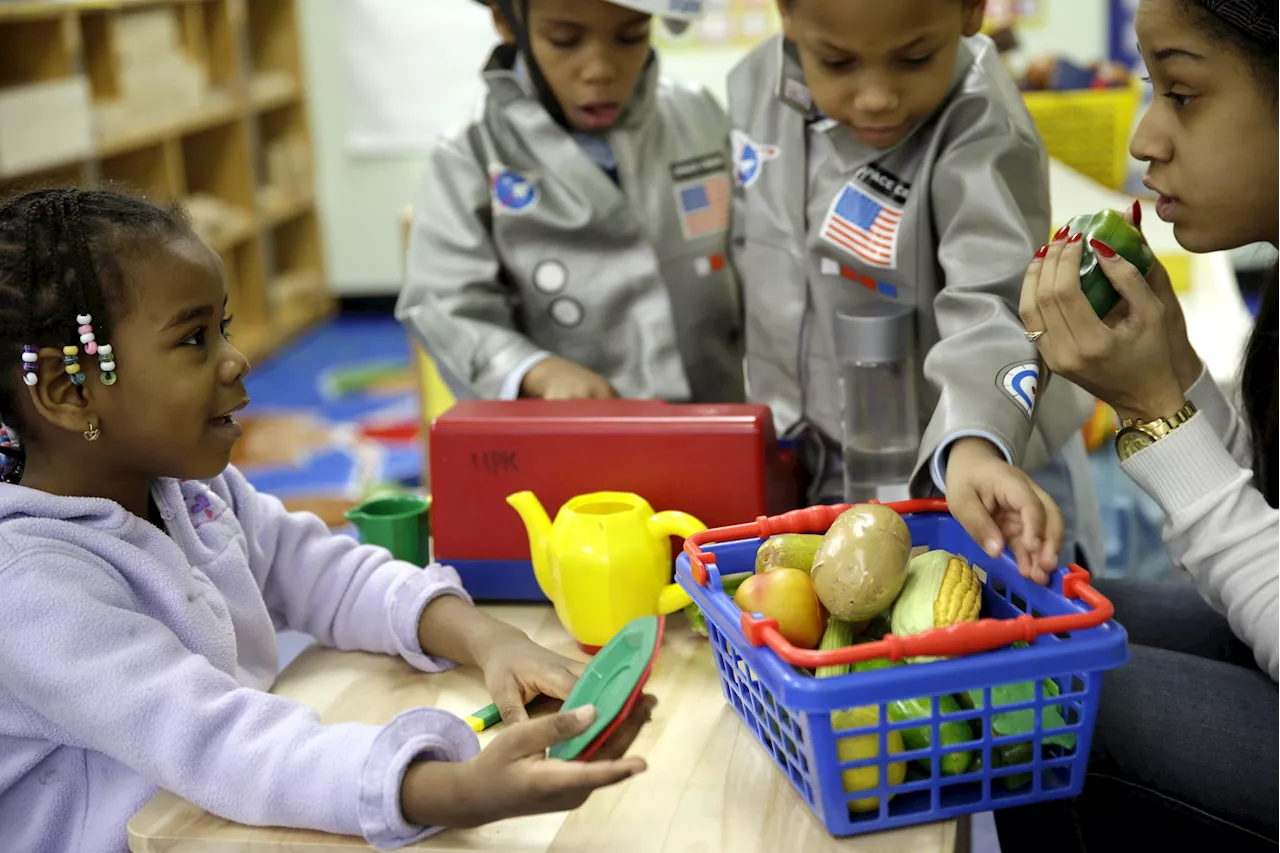 Child Care Advocates Launch Campaign for Free Pre-K for All 2-Year-Olds in NYCA coalition of child care advocates, families, and elected officials will march on City Hall on Sunday to launch a campaign for free child care for all 2-year-olds in New York City. The campaign comes just days after Mayor Eric Adams' State of the City address, which focused on early childhood education but lacked concrete proposals for expanding affordable child care.
Child Care Advocates Launch Campaign for Free Pre-K for All 2-Year-Olds in NYCA coalition of child care advocates, families, and elected officials will march on City Hall on Sunday to launch a campaign for free child care for all 2-year-olds in New York City. The campaign comes just days after Mayor Eric Adams' State of the City address, which focused on early childhood education but lacked concrete proposals for expanding affordable child care.
Read more »
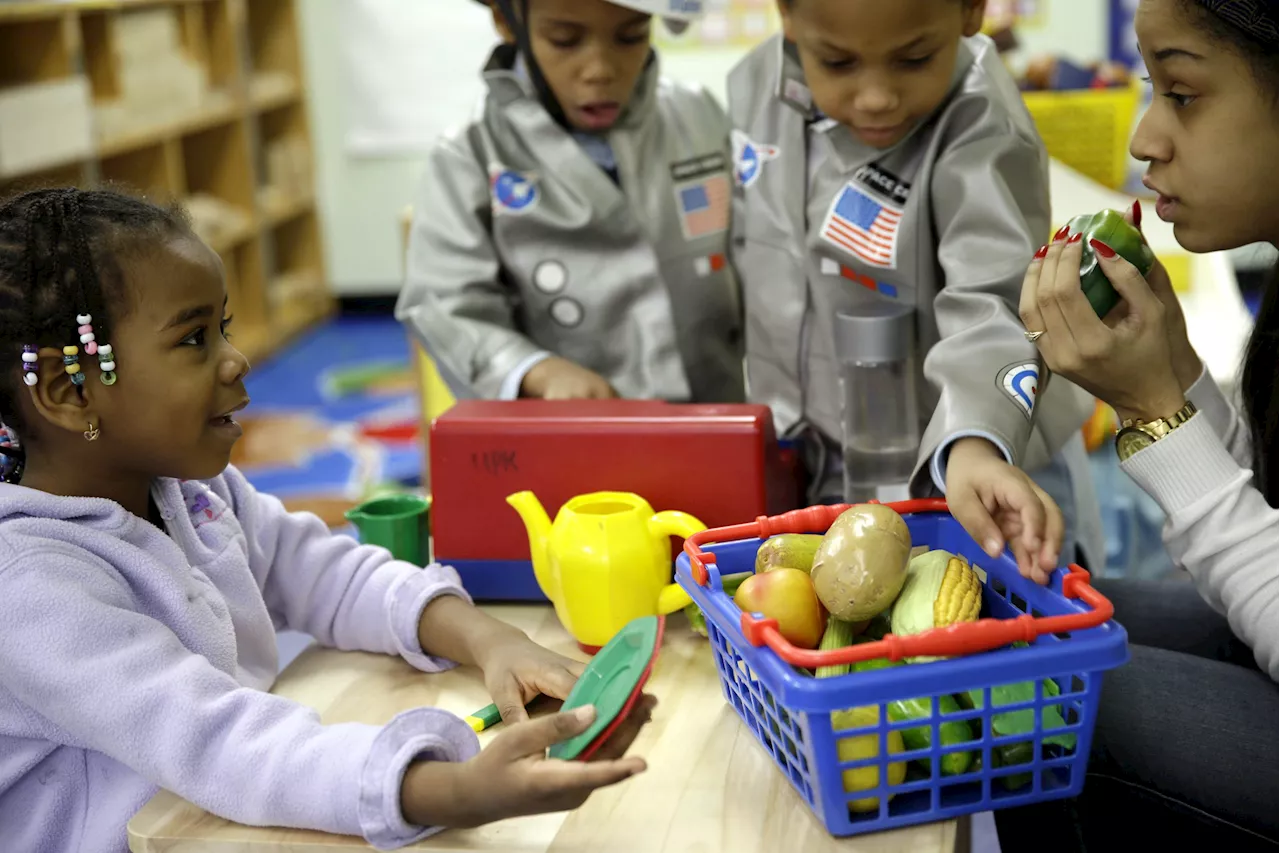 NYC advocates push for universal child care for 2-year-oldsThe New Black View
NYC advocates push for universal child care for 2-year-oldsThe New Black View
Read more »
 Alaska Seeks Solutions to Child Care CrisisA new report by Gov. Mike Dunleavy's Task Force on Child Care identifies strategies to tackle Alaska's child care shortages, including subsidies for families and streamlining the bureaucratic process for providers. The report highlights the impact of the COVID-19 pandemic, which led to a 10% decrease in licensed providers, and the financial strain on families due to high child care costs. Recommendations include geographical cost-of-living adjustments to parent income subsidies to address affordability concerns.
Alaska Seeks Solutions to Child Care CrisisA new report by Gov. Mike Dunleavy's Task Force on Child Care identifies strategies to tackle Alaska's child care shortages, including subsidies for families and streamlining the bureaucratic process for providers. The report highlights the impact of the COVID-19 pandemic, which led to a 10% decrease in licensed providers, and the financial strain on families due to high child care costs. Recommendations include geographical cost-of-living adjustments to parent income subsidies to address affordability concerns.
Read more »
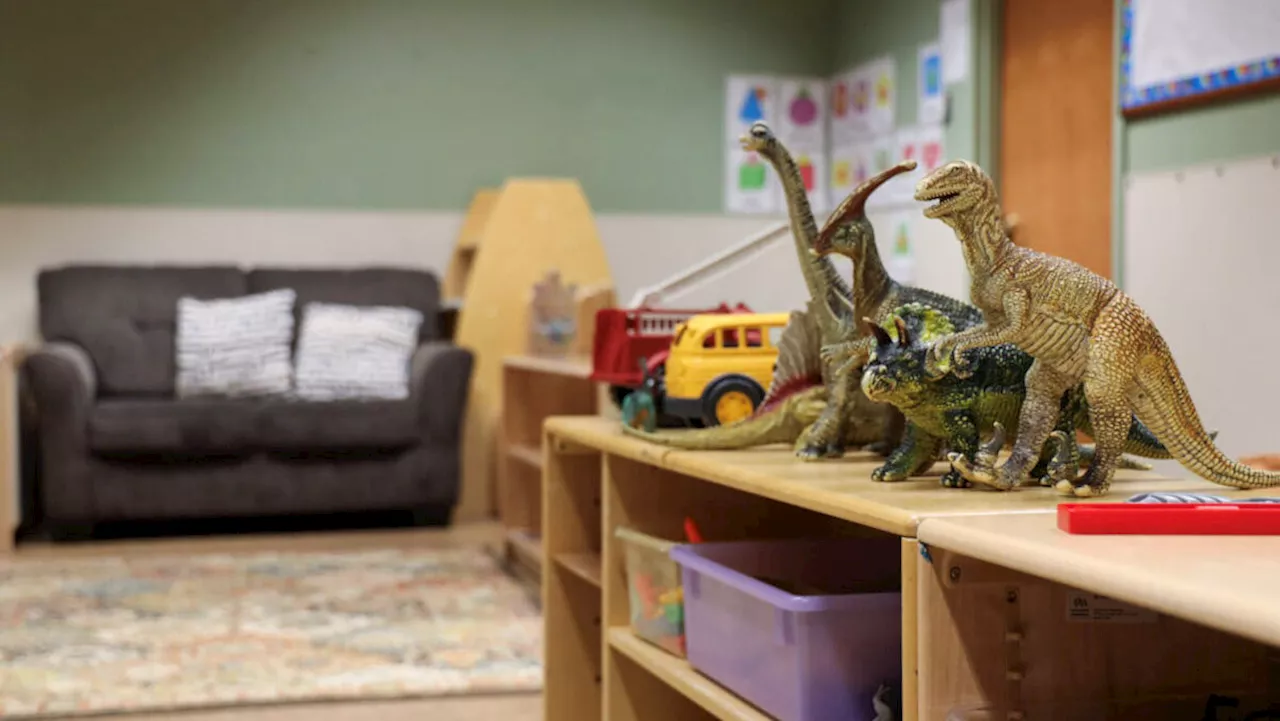 Juneau Child Care Crisis: Task Force Proposes SolutionsA state task force has proposed recommendations to address the child care shortage in Alaska, highlighting the economic impact on families and the need for increased public funding.
Juneau Child Care Crisis: Task Force Proposes SolutionsA state task force has proposed recommendations to address the child care shortage in Alaska, highlighting the economic impact on families and the need for increased public funding.
Read more »
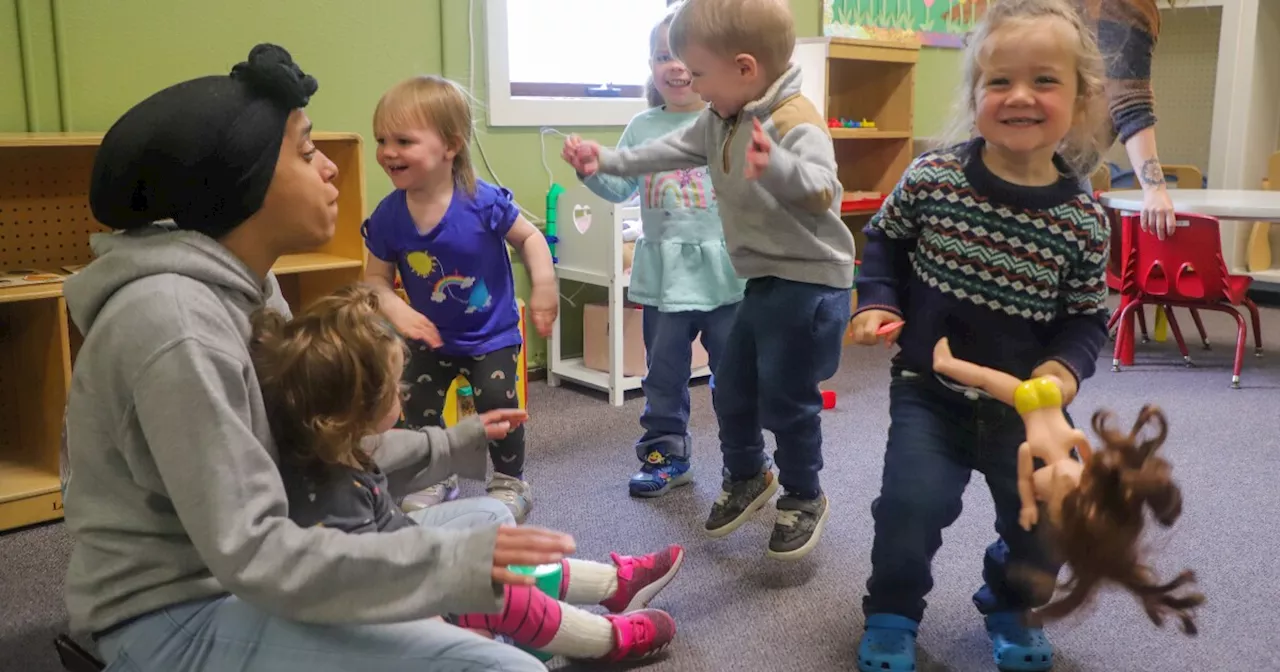 Alaska Child Care Crisis: Task Force Seeks SolutionsA new task force in Alaska is working to address the ongoing child care crisis in the state, focusing on affordability, access, and support for childcare providers.
Alaska Child Care Crisis: Task Force Seeks SolutionsA new task force in Alaska is working to address the ongoing child care crisis in the state, focusing on affordability, access, and support for childcare providers.
Read more »
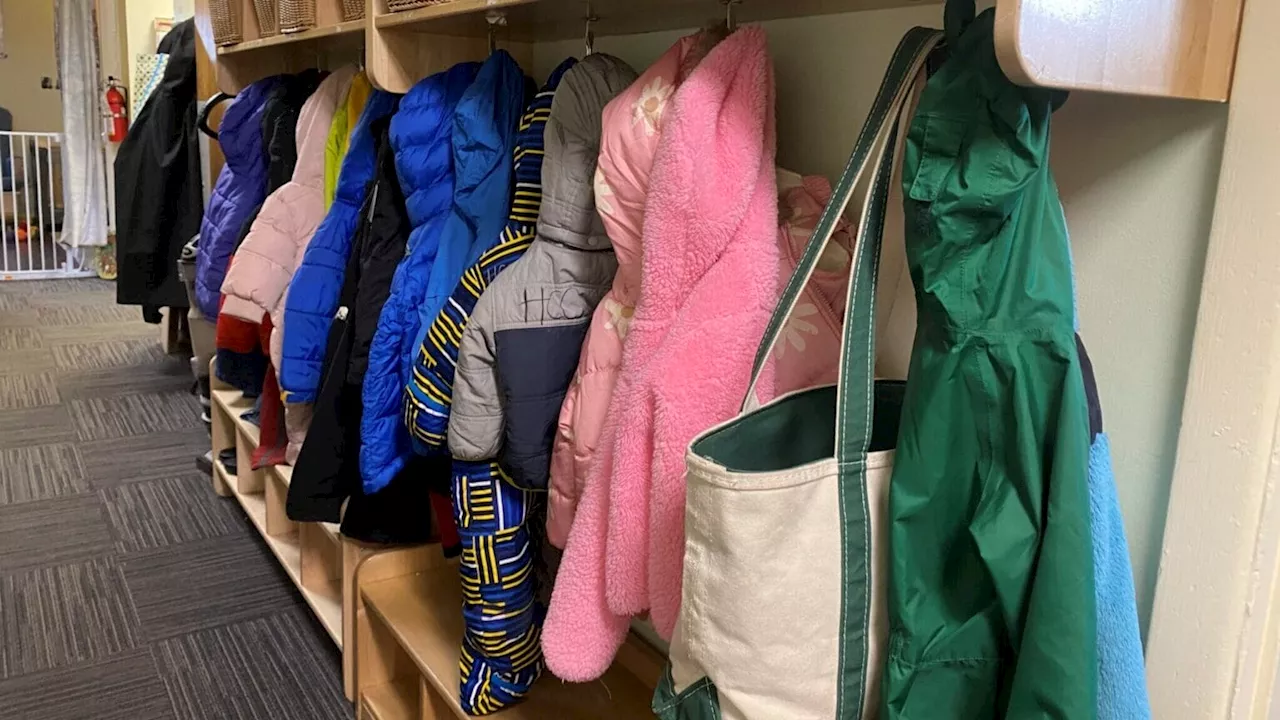 Alaska Seeks Solutions to Address Child Care ShortagesA new report by Gov. Mike Dunleavy's Task Force on Child Care offers recommendations to tackle Alaska's child care crisis. The report highlights the need for subsidies to bridge the gap between family expenses and the actual cost of child care, as well as streamlining bureaucratic processes for providers. The report also emphasizes the importance of supporting the child care workforce and addressing geographic disparities in costs.
Alaska Seeks Solutions to Address Child Care ShortagesA new report by Gov. Mike Dunleavy's Task Force on Child Care offers recommendations to tackle Alaska's child care crisis. The report highlights the need for subsidies to bridge the gap between family expenses and the actual cost of child care, as well as streamlining bureaucratic processes for providers. The report also emphasizes the importance of supporting the child care workforce and addressing geographic disparities in costs.
Read more »
